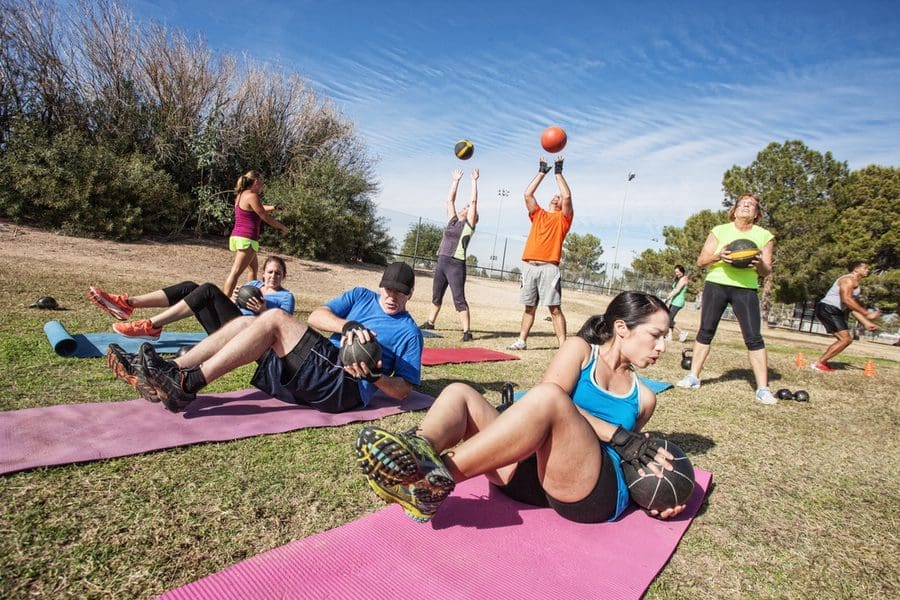If outdoor workouts are appealing to you, now could be the time to try a fitness boot camp. These rigorous classes have been around for decades, but they are enjoying renewed popularity in the wake of social distancing. While fitness boot camps are certainly no walk in the park, they can be highly effective and gratifying workouts. Here’s what you can expect.
Team Environment
Most boot camps are modeled loosely on military methods for whipping new recruits into shape, where participants are challenged beyond what they think they can do. The team environment offers support and camaraderie that can keep you engaged and motivated.
HIIT and Functional Training
Most boot camp workouts are made up of HIIT (high-intensity interval training), where bursts of intense activity are interspersed with intervals of lighter activity.
Boot camps also tend to emphasize whole-body functional training, featuring multi-joint exercises that simulate real-life movements. Traditional gym workouts using weights and machines improve strength, but functional training better prepares the body for activities such as climbing stairs and lifting heavy groceries.
Calisthenics, Sprints, and More
Fitness boot camps focus on boosting stamina and endurance with dynamic aerobic- and strength-based exercises. Most boot camps work the upper and lower body and core by combining a series of calisthenics such as push-ups, pull-ups, lunges, crunches, and squats. Most also offer drills and sprints. Some use equipment such as kettlebells, while others make use of park benches or tires.
Burning Calories
Many people look to fitness boot camp as a way to lose weight – and that’s a reasonable goal. The American Council on Exercise found boot camp-style workouts can burn up an average of 600 calories per hour.
Who’s Ready for Boot Camp?
Some fitness instructors say boot camp classes are best suited for those who want to increase the intensity of their routine after working out regularly for at least a year. They caution beginners to look for boot camps tailored toward exercise newbies or ones that divide participants into different skill levels. Newcomers may find that working with people who share similar fitness goals can be very supportive.
Before you sign up, assess whether the boot camp is a good match for you: Ask if there are any prerequisites, find out how the program is structured, and let the instructor know if you have any special needs or health issues. If you are pregnant, haven’t exercised for a while, have certain health conditions, or are older than 40, check with your doctor before starting a boot camp class. Checking in with your doctor is a good idea before embarking on any new exercise program.







